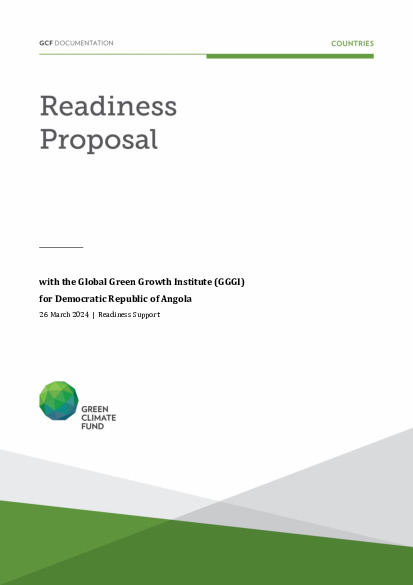Enhancing Angola’s Access to Climate Finance for Sustainable Transport and Sustainable Landscape (AFOLU) Sectors

Enhancing Angola’s Access to Climate Finance for Sustainable Transport and Sustainable Landscape (AFOLU) Sectors
Climate change poses a severe threat to Angola’s economy and its population. About 80% of the most frequent disasters recorded in Angola are directly associated with hydro-climatic events: water scarcity or excess. Angola is facing the most severe drought of the last 38 years, aggravated by the disruptions caused by the COVID-19 pandemic. Furthermore, climate change is expected to increase the frequency and intensity of hydrometeorological disasters with adverse effects on critical sectors of the Angolan economy. Economic sectors are highly vulnerable to climate change impacts, which pose severe livelihood and direct health risks and affect economic potential and national food security. Angola plans to reduce greenhouse gas (GHG) emissions by up to 35% by 2030 as compared to the Business as Usual (BAU) scenario (INDC, 2015). Angola’s mitigation contribution takes the form of a reduction in GHG emissions through the combined total unconditional and conditional contribution is, therefore, a 24% reduction in GHG emissions compared to the BAU scenario in 2025, which focuses on four primary sectors: (1) energy including transport; (2) agriculture, forestry and other land use; (3) industry; and (4) waste (NDC of Angola, 2021)1.
This Readiness grant aims to enhance Angola’s access to climate finance to implement its NDC targets, namely by developing the Readiness Needs Assessment, the Country Porgramme and a report on the potential for Green Economy related opportunities, so that the country has the information needed to better engage with the GCF, and by working with two out of four priority mitigation sectors of the 2021 NDC targets, which are the most significant contributors to Angola’s GHG emissions:
- Energy, including the transport sector, with a focus on e-mobility. E- mobility is one of government’s priority sectors, as well as the focus of the AfDB Readiness grant, which this Readiness proposal will complement.
- Agriculture, forestry and other land use (AFOLU), with a focus on landscapes/forestry/climate-resilient agriculture (including rural water/energy) nexus approach. The AFOLU sector work in this Readiness proposal is expected to provide a robust justification and clear proposition for further action by the government and request for more investment.